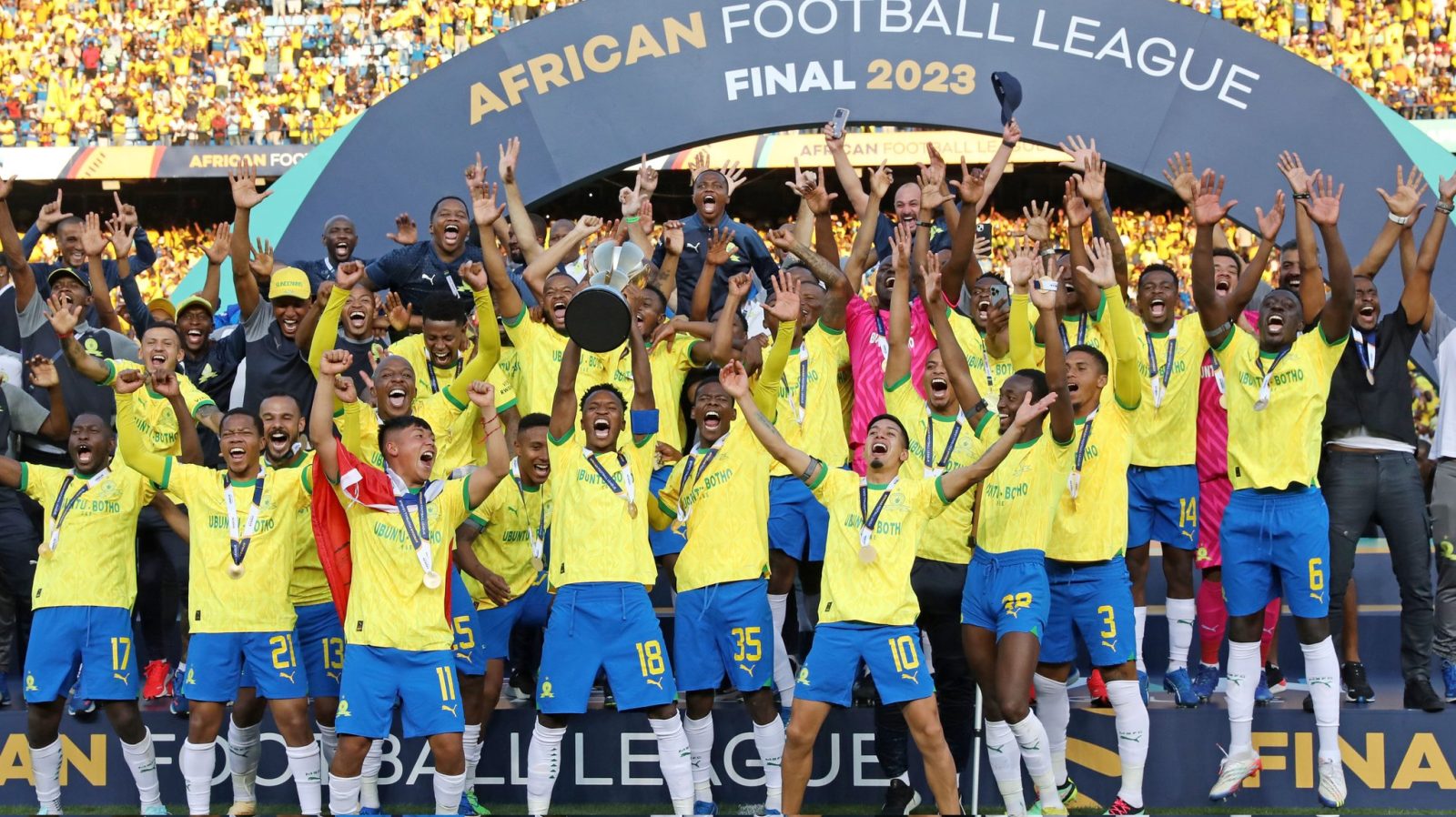For a tournament that is supposed to be annual, the silence around the African Football League since then has been deafening.
By Tuka Letura
In late 2022, CAF President, Patrice Motsepe, and FIFA President, Gianni Infantino, unveiled plans for a new pan-African Super League, soon named the African Football League (AFL). This competition was envisioned as a “game changer” to raise club revenues and keep top football talent on the continent.
Notably, it had full FIFA support, a sharp contrast to Infantino’s vocal opposition to Europe’s proposed breakaway Super League. Motsepe pledged a $100 million prize pool and advance payments of $2.5 million to each inaugural club.
Unlike the long-running CAF Champions League, which requires teams to qualify through domestic league performance, the African Football League was structured as an exclusive, invitation-only tournament. Organisers emphasised that it would run concurrently with the CAF Champions League and would not immediately replace it. Backed heavily by FIFA, the AFL was positioned as a flagship product to lift the commercial profile of African club football and attract global attention.
After a few hiccups, the African Football League officially launched in October 2023 with eight elite clubs selected from across the continent. These included Al Ahly (Egypt), Mamelodi Sundowns (South Africa), Wydad Casablanca (Morocco), Esperance (Tunisia), TP Mazembe (DR Congo), Enyimba (Nigeria), Simba SC (Tanzania), and Petro de Luanda (Angola).
The competition followed a straightforward knockout format, culminating in a two-legged final between Al Ahly and Mamelodi Sundowns, with Al Ahly emerging as the inaugural champion.

Despite the tournament being a shorter pilot version than initially proposed, it was executed with notable broadcast partnerships, strong viewership figures across Africa, and a sense of renewed continental pride. Mamelodi Sundowns were the eventual winners after beating Wydad Casablanca 3-2 on aggregate over two legs in the finals. The promise was clear: this was only the beginning.
As 2024 rolled in, so did confusion. The second edition of the African Football League, which many expected to grow to 24 teams across multiple groups and stages, failed to materialise. CAF channels remained conspicuously quiet. The last notable communication on the AFL came in July 2024. No matches, no draws, no fixtures—nothing.
However, in September 2024, Motsepe said: “The African Football League (AFL) in the first season was a huge success. We can be proud of the work & money that went into it”.
He added that the second season will take place, but the schedules are tight at the moment, particularly with the FIFA Club World Cup tournament coming up, so they are still working around the clock.
But here’s the thing: that was eight months ago. And in football, eight months is a lifetime. For a tournament that’s supposed to be annual, the silence since then has been deafening.
The sudden absence of updates raises pressing questions. Was the African Football League just another flashy project that succumbed to the complexities of African football logistics and politics? Or was it facing quiet restructuring behind the scenes?
And the truth is, no other continental tournament—none—is hinging its future on whether the Club World Cup happens or not. Every other Confederation under FIFA continues to run its continental club competitions, business as usual. Europe, Asia, South America, they’ve all figured it out. Even with the Club World Cup’s new format, it hasn’t stopped anyone else.
So it begs the question: What exactly is different in Africa?
In his comments in September, Motsepe declared that the African Football League would become the “number one club competition in Africa”, surpassing the CAF Champions League, which would now play second fiddle.

It’s a bold reordering, but it questions how viable the shift is. Can an invitational tournament, already perceived by some as elitist, gain long-term traction in a football ecosystem where meritocracy through league performance still matters? And if CAF Champions League now plays second fiddle, what message does that send to smaller clubs and leagues working to gain recognition through existing structures?
For now, that’s a different conversation, and can’t be wholly analysed until there’s stability and sustainability of this competition.
Motsepe hinted that the next edition may not occur until 2026. The expanded FIFA Club World Cup, and its overlap with African club calendars have introduced scheduling chaos. It also highlights a familiar problem: African football’s subservience to global (mostly Western) calendars and priorities.
If the African Football League is serious about becoming the “number one” competition on the continent, then there needs to be clarity, consistency, and commitment.
The African Football League needs to come out of hiding. It must be better organised, more consistent, and more visible. You can’t run a football competition and expect people to care about it if they neither see nor hear about it.
Nearly two years without any clear indication of the competition’s return is far too long—especially for something that was meant to be an annual event. When it was first introduced, there was excitement. People were talking about it, and it drew significant attention. But now that the buzz has faded, many no longer even remember that the competition existed. Things won’t simply return to how they were.

If nothing changes, the league will continue to be viewed as just another FIFA experiment. That reputation will only worsen if a new edition doesn’t arrive within the next six months—or at the very least, by the start of 2026. Even if the CAF President keeps his promise to revive the competition, the delay has already damaged the league’s image. Other continents have kept their tournaments running, despite the upcoming FIFA Club World Cup. So why should Africa’s own league fall silent?
The truth is, bringing back the African Football League isn’t just about hosting matches again. It’s about repairing the damage and proving that African football can sustain a serious competition. That requires strong leadership, proper planning, and a firm commitment to staging it annually—not just now and then.
If the league returns in 2025 or 2026, it will have to work hard to regain trust and interest. For now, though, everything remains quiet. The lights have dimmed. How long will the wait continue? That’s for CAF and its management to decide.
Tuka Letura is an experienced sports writer with over six years of experience in the craft. He uses data and statistics to provide analysis and commentary. From regional to worldwide competitions, he has covered a wide range of sports-related events and topics. He is devoted to sharing his enthusiasm for sports with his audience and engaging them with interesting anecdotes and viewpoints.



